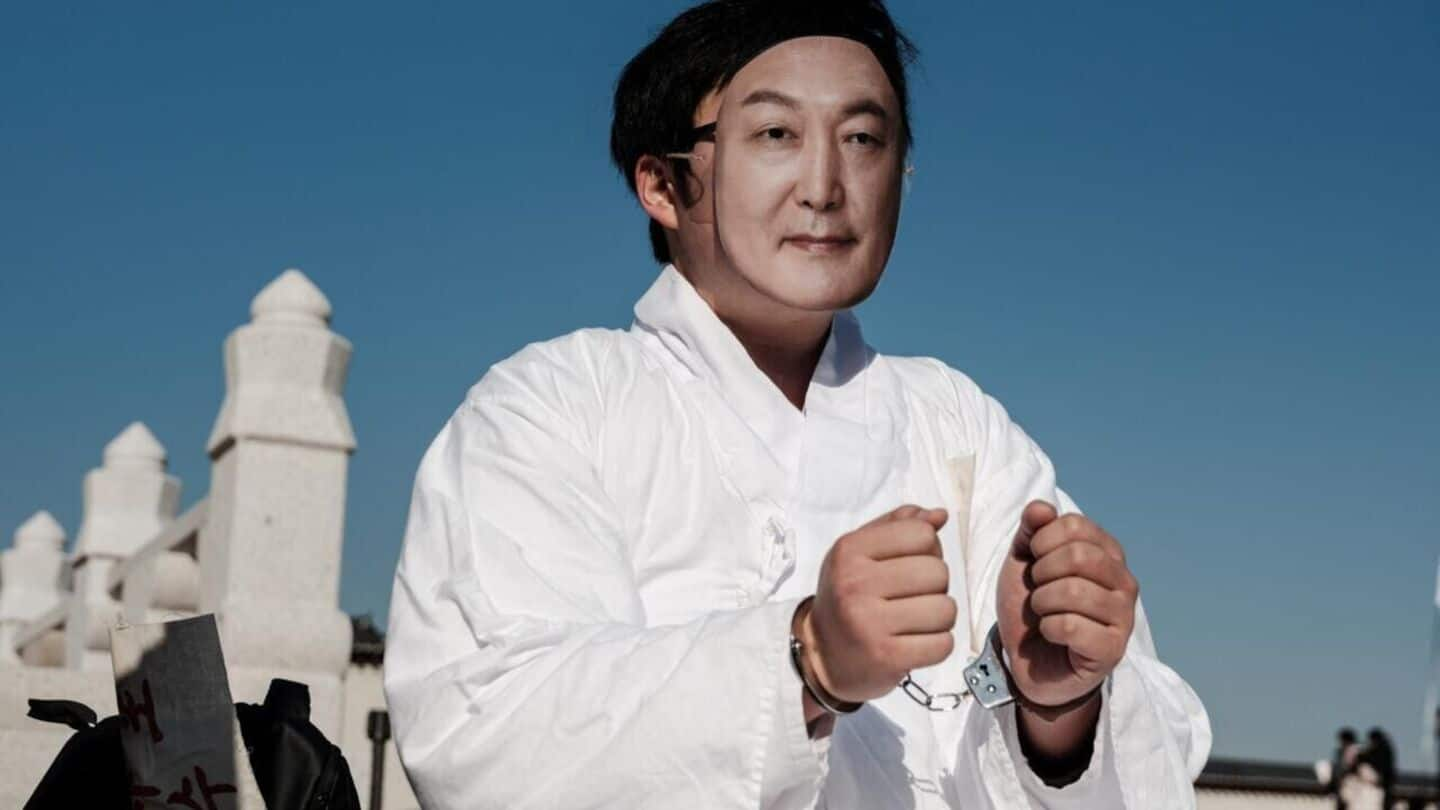
South Korea's ex-President Yoon to face trial for martial law
What's the story
Former South Korean President Yoon Suk Yeol goes on trial on Monday, over charges of insurrection.
The case originated from his brief declaration of martial law in December, which caused a major political crisis in the country.
His effort was short-lived; it was dismissed by opposition MPs within six hours.
Political fallout
Yoon's martial law decree triggered political upheaval
Yoon's decree to impose military rule on December 3 had included halting political activities and censoring the media.
The National Assembly was quick to impeach him after this move, and the Constitutional Court revoked his presidential powers on April 4.
Despite losing all presidential privileges, Yoon still faces criminal charges of insurrection, which will be taken up in court from Monday.
Legal defense
Yoon's legal team argues procedural flaws in detention
At a preliminary hearing in February, Yoon's lawyers had contended his detention was procedurally flawed; the court accepted it and released him 52 days after his arrest.
He was detained after a dawn raid in January, becoming the first sitting South Korean president to be arrested.
If found guilty of insurrection, he could get life imprisonment or even the death penalty.
Post-presidency
Yoon returns to private life amid political uncertainty
On Friday, the 64-year-old ousted president was back at his private home in Seoul after emptying the presidential residence.
"Now, I return to being an ordinary citizen of the Republic of Korea, and I will seek a new path in service of our country and our people," he said.
After Yoon's dismissal, South Korea is headed for snap polls on June 3. Han Duck-soo is acting president, meanwhile.